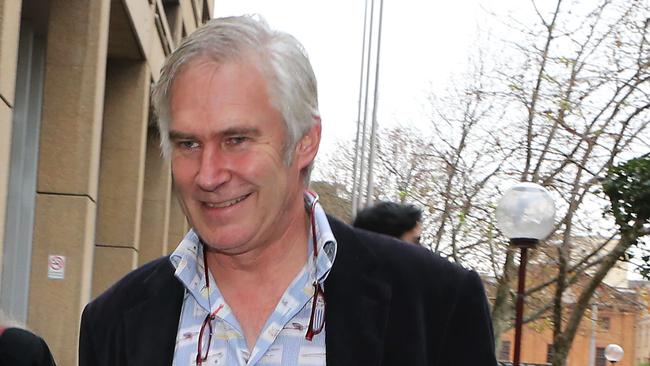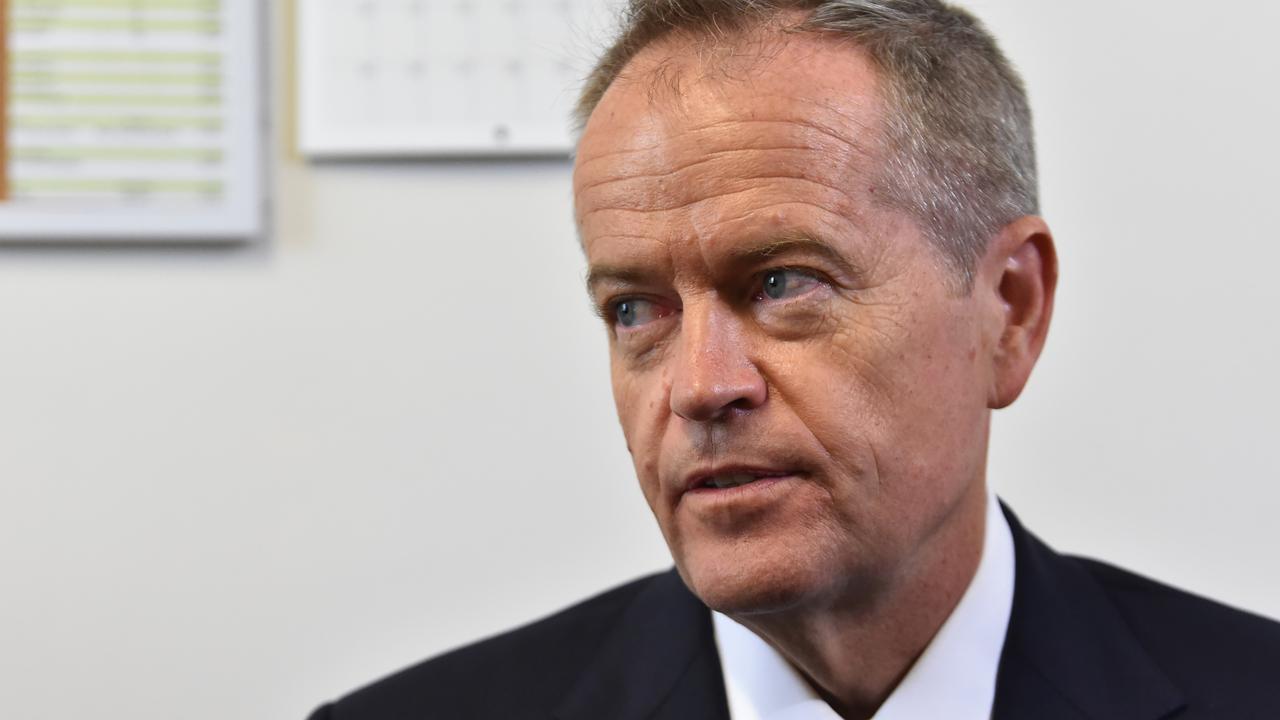Lawler ‘belittled advocate’ in case before him
Fair Work Commission vice-president Michael Lawler allegedly verbally abused an industrial advocate appearing before him.

Fair Work Commission vice-president Michael Lawler verbally abused an industrial advocate appearing before him in a conference last year, calling her utterly incompetent in front of her client and offering to “dip into” his sick leave for time off to act voluntarily for the client himself.
The allegations have been made in a formal letter of complaint later filed with Fair Work Commission president Iain Ross.
If established, the outburst would put Mr Lawler in conflict with his position as one of the most senior figures at the FWC. The allegations in the complaint are yet to be investigated, as Mr Lawler has been on fully paid sick leave for eight months of the past year.
This adds to perceptions that Mr Lawler has a propensity to act in conflict with his FWC position — given that he appeared in the Federal Court a year ago as an advocate for his partner, Kathy Jackson, who faces accusations of misappropriating $1.4 million from the Health Services Union.
Documents related to the formal complaint, obtained by The Weekend Australian, also reveal that Mr Lawler was on fully paid sick leave from his $435,000-a-year FWC job for many months last year, including the period when he represented Ms Jackson at the Federal Court hearing on June 20 last year.
Mr Lawler said through his lawyers yesterday he was unable to respond to questions regarding the complaint against him, or to questions regarding the nature of his illness, or whether his representing Ms Jackson in court last year was a conflict of interest.
The complaint filed against Mr Lawler for abuse of power followed a minor FWC conference on May 27 last year, where he presided by phone from Sydney. The complaint has been stalled for more than a year and Mr Lawler has yet to respond to the complainant — who has requested anonymity, citing fear of reprisal.
After sending a preliminary letter to Mr Lawler and Justice Ross about Mr Lawler’s alleged conduct, the complainant was advised by the FWC on June 4 last year that Mr Lawler had taken extended sick leave and the matter had been given to another commission member to conclude.
After being told Mr Lawler was on sick leave, the complainant was alarmed by a media report last year that Mr Lawler, formerly a barrister, had appeared in the Federal Court on June 20 — just three weeks later — representing Ms Jackson.
During that hearing, Mr Lawler had engaged in a raft of legal discussions with judge Richard Tracey over forthcoming legal arguments, evidence, and references to High Court cases which Ms Jackson would use to fight the union.
The day before this hearing in the Federal Court, Mr Lawler was photographed by national media on Ms Jackson’s arm, smartly attired in a suit and tie, arriving at the royal commission into trade union governance where she would be questioned.
Internal Fair Work documents obtained by The Weekend Australian include letters from Justice Ross to the complainant related to long delays in dealing with her complaint.
They reveal Mr Lawler was on sick leave from June until December last year, then returned to work for several months, before taking more extended paid sick leave since April this year.
According to the formal complaint against Mr Lawler, he allegedly used threatening behaviour in the conference, and had also inexplicably warned the advocate and her client of the generally high costs of barristers, with a reference to his own situation with Kathy Jackson.
In the complainant’s letter to Justice Ross, she alleged: “His Honour illustrated all of this for us by reminding us he earned a huge remuneration as paid to him by parliament, and then revealed, ‘my partner and I are involved in legal matters and we still have to dip into the mortgage’.”
The complainant’s first letter was sent to Mr Lawler on May 30.
“Dear Sir, I am extending the courtesy of notifying you that I am proceeding with a formal complaint against your ‘professional’ behaviour during the course of that (May 27, 2014) conference. While I respect you are a ‘big fish in a very tiny pond’ (your words) and ‘second in charge’ (your words), I also note your repeated concession, namely, you do not claim to be ‘God’s gift to the law.’ It is the essence of that insight I will be pursuing in my complaint.”
Mr Lawler did not respond. Months went by. An associate to Justice Ross emailed the complainant on September 15, to say Mr Lawler remained on sick leave. On September 25, the complainant wrote seeking an update. On September 29, Justice Ross replied himself. In concluding, he advised the complainant that commission members were answerable to parliament.
“As part of the process of investigating any complaint relating to member conduct the complaint is put to the member concerned and they are provided with an opportunity to respond. As my associate informed you Vice-President Lawler is on sick leave at the moment and in my view it would not be appropriate to raise these issues with him at this time … I note that s641A of the Fair Work Act 2009 also provides that the minister may investigate a complaint.”
On March 13 this year, the complainant raised concerns with Justice Ross about the tardiness in dealing with the complaint and questioned the nature of Mr Lawler’s sick leave in blunt terms. “Importantly and relevantly at the time I notified the VP/you of my impending complaint, I had no knowledge of the VP’s ‘reputation.’ I became aware of it, in no small part, because of the VP’s well-publicised behaviour whilst ostensibly off work on ‘sick leave.’
“I acknowledge the publicised information put into context some of the VP’s more bizarre observations made at our conference. It also put in context the ‘true nature’ of the VP’s absence from the Commission, which self-evidently was not ‘sick leave’.”
On May 29 this year, Justice Ross wrote again to the complainant to say that Mr Lawler had taken further extended sick leave. However, he revealed that he had blocked Mr Lawler’s future role in conferences such as the one which had given rise to the original complaint.
“Vice-president Lawler has resumed a period of extended sick leave … as Vice-President Lawler is currently on sick leave it would be inappropriate in my view to raise these issues with him.
“I regret this has delayed my substantive response to your complaint. As an interim measure, I have taken steps to ensure Vice-President Lawler no longer deals with s. 372 applications.”
The complainant responded on June 8 with a testy email to Justice Ross pointing out that Mr Lawler had returned to work for a few months before leaving again on a second round of sick leave, yet had not responded to her complaint. She criticised Justice Ross for not curbing Mr Lawler and dealing with the complaint while a year had gone by. “It is hard to imagine how the public can retain confidence in your running of the commission, especially in light of the arguably wasted public expenditure on the Vice-President’s salary.”
On June 13 this year, just a week ago, Justice Ross — sounding frustrated himself — wrote back. “I do think it is unreasonable to ask the Vice-President to provide an interim response to your complaint at a time when he is on sick leave … your reference to the ‘arguably wasted public expenditure on the Vice-President’s salary’ as the basis for some lack of confidence in my ‘running of the Commission’ is ill-informed. I did not appoint the Vice-President and have no power to remove him from office, as is plainly apparent from a reading of the Fair Work Act 2009.
“As to whether or not you wish to contact the Minister in relation to the matter that is entirely up to you. I note that in the event the Minister is of the view that my handling of this matter has been less than satisfactory, he may choose to investigate your complaint in respect of Vice President Lawler himself, pursuant to s. 641A of the Act.”
Exactly two days after this letter was sent, on Monday last week, Mr Lawler was back in the Federal Court with Ms Jackson for an interlocutory hearing. He was still on sick leave and unable to attend work at the FWC.
During the hearing, he provided handwritten notes to Ms Jackson’s barrister, approaching the bar table 10 times and leaving the room with counsel for discussions several times.
Mr Lawler appeared to be unconcerned about cameras recording his presence at the court. During regular breaks outside on Sydney’s Castlereagh Street, he stood close to and in the direct line of sight of a waiting gaggle of photographers. Unbeknown to Mr Lawler only one of them, from this newspaper, was there to take his photograph. The rest had another target.
During the six months Mr Lawler remained on paid sick leave last year, Ms Jackson was fighting on two fronts: in the Federal Court against the HSU and in hearings of the royal commission into trade union governance. Mr Lawler returned to work at the FWC in December.
In April this year, Mr Lawler again took sick leave on full pay — which will run through until late next month or early August. Ms Jackson’s trial is set down for 10 days starting on June 29.
Ms Jackson returns to the Federal Court next Monday for a hearing on whether her application for a permanent stay on proceedings will be granted.



